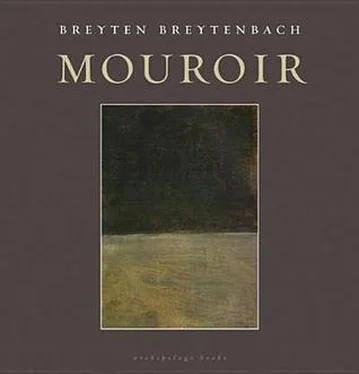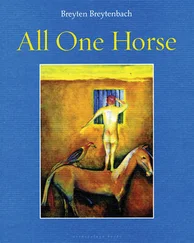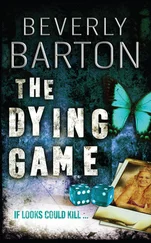Before leaving the North she had been a courtesan. Many of her race had been courtesans, the unattached ones, the indolent: the country was rich, affairs flourishing, pleasure at a price appreciated though easy enough to come by. Of course the others, the indigenous caste, had been simply whores. But her calling had necessitated a given learning and her craft had similarly been an education. From her aspirants she had taken some words; to these words she tried to fit thoughts. She is tired now. She thinks: fleeing is not the correct environment for feeding the nous . She thinks: I must get away, even if only with this taciturn Fagotin Fremdkörper, but how I regret the days which have fallen behind for ever. That is what is known as laudator temporis acti . In Italics. And now I am dust. She thinks: I am taking my thinking and myself with me, my Lares and Penates, but my thinking makes of my being a felo de se . It is the North. No doubt. It is the heat. It is the night. It is the hope, feigned or real. It is death we flee with, latent, lulling, seemingly innocuous. A passing matelot, for whom she had nearly developed a fancy (wasn’t his name Thibon, Gustave?), had told her that one should not run away in order to be free. “If you fly from yourself, your prison will run with you.” And since she’s not leaving the self behind, she thinks, it must mean that the self is death. It must be the words larded with a strange life. And she thinks: we must get to a latrine soon-soon or my bladder will burst.
She says to Fagotin Fremdkörper that they will have to stop somewhere for there is the need for a crinkle and tinkle, and he answers that it won’t be long now, that he knows of a halfway house where they will find all the amenities, refreshment and fuel too, because they cannot continue for much longer like this; and that the place is quite near really, that it is a warm and welcoming joint run by a friendly compatriot, that at least must still be so. (“All things have not turned to dust.” And: “The alternative is too ghastly to consider.”) She attempts to extract conviction from his assertions, she sits up straighter and she reflects that she’s conceivably feeling quite feverish from fatigue and perhaps this nice travellers’ inn could serve her a cool febrifuge. She thinks: I’ll say “f-f-f-ancy that!” And then she thinks further that f’s are really funny because they are so ferociously inquisitive, like the heads of wind craning over tall grass. She looks down the beaming blind headlights and decides that she will get out of the car when they reach this haven, what the hell, even if her creased clothes and caked visage are infra dignitatem .
But when they reach the service station the buildings and premises are dark. She feels her heart a black word in the throat. Fagotin Fremdkörper doesn’t dare use the hooter of the car: the North is still with them and nowhere is safe nowadays. He doesn’t have to — a man steps out of one of the dark buildings, cautious. It is the owner, the sympathetic compatriot, morose, with an unkempt moustache. Fagotin Fremdkörper has turned off the engine and they sit immobile in the sudden swishing silence of the immense, dry and glittering night. Yes, but certainly, the innkeeper assures them, they may have some petrol. Although. And he glances around him at the dark as if he suspects informers lurking there. No one is to be trusted any more, he says. I have seen them all pass by. Not many more to come, I should guess. Hard times, hard times. Yes, perhaps I still have a few litres. My last. All taken you know, and never to be replenished. Don’t know why I’m still hanging on. He pushes a feeble expectorating sound out into the night: his docile and hollow laugh. But where shall I go? Laputa? I see them come and go, I’ve seen them going, they are going, it is all gone. But look, he says, I shouldn’t be hanging around if I were you, all these informers you know, and he listens, listens in the dark. Let us whisper. No but look, he also says, making a vague movement with a hesitant hand — why, if you’re bushed you may stay the night: there are a few other — ah — travellers waiting in their cars back there. Back there must be a parking space behind the barns where landaus and spiders and traps and barouches and calèches and coaches and phaetons and victories and hearses and buggies and ox wagons used to be housed in days of yore when visitors were curious tourists who had to be amused at so much a head. They can hear a rapid soft shuffling sound coming from a darkened barn. S’s are snakes. What is that? She asks as she decides to get out and relieve herself words and all.
Out she gets of the car, disturbing dust unseen in the night, and asks: what was that there? The shrouded sound. Squeak of unoiled springs. Then the silence. Fagotin Fremdkörper in the car. The hostelier, turned, cock-eared, taut. Fear.
A moan and they all start running. From the other conveyances people come running. Someone has a torch at hand. Into the barn. Beam picking out spokes, sudden glint of rim, dust, more dust. Furtive movements somewhere. An animal panting. “Quiet!” Listening. More people thronging into the barn. Thoughts, she thinks. Not even words. “Got’em!” “Damn bastards!” Hysteria there. “Bloody Blacks screwing!” What? Where? Yes, a couple of Blacks it would seem, taking refuge here — having moved in from the North? — but how, afoot? — and softly fornicating in the dusty dark. “Aarrgh!” “Get ’em!” Thrashing, grunting, flesh against wood, panting, bodies in dust. “Out here!” “The beam!” “Put off that light you stupid idiot. Want to attract the others?” “Quiet!” “Quiet, gentlemen!” (Pretension is better than cure.)
The gentlemen are quiet. The sordid and confused movements in the dark. She lets down her panties, squats, relief without thinking, and the hissing sound of it. A form is dragged out. Must be the male, straining against their arms. Kicking of legs. Body against body. Dust unnoticed in the night. A post or some upright part of an ancient vehicle somewhere. A rope. Panting and grunting. The vague shapes silhouetted against the glow of stars. Blows. Thumps. A tightening. Figures moving back, one remaining trussed and twisting. A tightening. Twang of line. A gasp. Silence. No. A gurgle raucous, prolonged, full of spittle, dying away with life. And then, soft at first, but rapidly scaling and soaring through the mark and up into the night: the wild wailing of a woman. Star-sound.
When it is dark over the small Old-Land town Fagotin Freemkop leaves the boarding house on his way to church. Wing-dark outside, there are no street lamps and starshine doesn’t quite penetrate the foliage of the trees lining the street. And it is very hot. The sultry night air is heavily laden with the scents of summer growing — from the mountains come the wet green odour of pines; from the black garden flows the sad but sweet fragrance of gardenias as if the bedsheets of old lovers who had long been separated are now aired over the veranda wall under the cover of night; even the hairy bodies of bats sweepswooping unexpectedly through the opaqueness smell of wild fruit laid away in the loft, of warm earth. And in front of Pappa Roos’s house with its neo-classical portico on columns, lost in the even denser obscurity of the house’s shadow in this dark night, a magnolia tree is a mysterious and swooning conflagration: tongues, flames, holiness deep from the earth’s womb. Further along the street a cricket scrapes rip-tip-tip-tip-prie , only much faster.
And although it is dark, Fagotin knows about the dust all around him; but the dust is warm too, the dust has the aroma of high summer. Cheet-cheet-cheet-cheet-cheet goes the spraying nozzle, the rose, of the hose sprinkling its droplets over the library’s walled garden. From the other side you can smell the entwined heat and humidity coming towards you. The water becomes perfume. Things unfold.
Читать дальше












